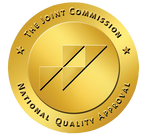Examples of group topics used in all Treatment Levels…
Criminal and Addictive Thinking — Evidence-based pioneering treatment program. Encourage clients to explore the distorted thinking patterns at the root of addiction and criminal behavior. – Hazelden Foundation
Relapse Prevention Workbook — Practical Exercises for Managing High-Risk Situations. – Terence T. Gorski
Staying Sober — A Guide for Relapse Prevention. – Terence T. Gorski
Passages Through Time — An action plan for preventing relapse. – Terence T. Gorski
Seeking Safety — A Cognitive Behavioral Therapy Manual for PTSD and Substance Abuse. – Lisa M. Najavits
Anger Management for Substance Abuse and Mental Health Clients — Anger Management with substance abusing clients curriculum. – U.S. Dept. of Health and Human Services
Men’s Work — Created to assist male clients with attitudinal, behavioral, and emotional change resolving conflicts. – Paul Kivel, Hazelden Foundation
Self Esteem Workbook — Created to assist Client with addressing and developing a healthy Self Esteem and Self Worth. – Glenn R. Schiraldi, Ph. D.
Living in Balance — A flexible program which draws from cognitive behavioral, experiential and Twelve Step approaches to help clients achieve lifelong recovery. NRPP listed. – Hazelden Foundation
Helping Men Recover — A gender–responsive, trauma–informed, culturally competent, strengths-based treatment program for men. – Stephanie S. Covington, Dan Griffin, Rick Dauer
Domestic Violence — 52 Week Batterers (court approved) – Kathy Mathis
Paradigm Development – Making Recovery – and Not Relapse –
the Expected Outcome of Addiction Treatment. (court approved)
Seeking Safety — An integrative treatment approach is presented, developed specifically for post-traumatic stress disorder and substance abuse. Focus is on working toward discontinuing substance abuse, letting go of dangerous relationships, and gaining control. – Lisa M. Najavits
DBT & 12 Steps — Developed for clients with multiple diagnoses, Dialectical Behavioral Therapy has been shown to be effective in addiction treatment. A new program unites the therapy with traditional approaches to addiction recovery. – Hazelden
Thinking for a Change (T4C) — A cognitive behavioral curriculum developed by the National Institute of Corrections that concentrates on changing the criminogenic thinking of offenders. – Prepared by the NIC Information Center
Cognitive Behavioral Therapy for People with Co-occurring Disorders — Part of Hazelden’s Co-occurring Disorders Program With Cognitive Behavioral Therapy for People with Co-occurring Disorders, clients develop the knowledge and skills to continue practicing evidence-based CBT techniques on their own.
Bright Group — A group cognitive behavioral therapy for depression in clients with co-occurring alcohol and drug use problems. – The RAND Corporation
Helping Men Recover — A program for treatment addiction – special edition for use in criminal justice system. – Covington, Griffin, Dauer
Helping Women Recover — A program for treating addiction. – Covington
Paradigm Development — The PDMT companion for DUI and substance abuse treatment programs. – L. Georgi DiStefano LCSW
The Matrix Model — An Evidence-Based Intensive Outpatient Treatment Program for Alcohol and Drugs. Proven Effective in the Treatment of Methamphetamine Addiction. – Hazelden Foundation
Journey to Recovery — Co-occurring disorders, Co-occurring treatment. – Dr. Hal Baumchen
Bradshaw Adult Children of Dysfunctional Families — Changing the cycle of abuse.
Criminal and Addictive Thinking — Evidence-based pioneering treatment program. Encourage clients to explore the distorted thinking patterns at the root of addiction and criminal behavior. – Hazelden Foundation
Relapse Prevention Workbook — Practical Exercises for Managing High-Risk Situations. – Terence T. Gorski
Staying Sober — A Guide for Relapse Prevention. – Terence T. Gorski
Passages Through Time — An action plan for preventing relapse. – Terence T. Gorski
Seeking Safety — A Cognitive Behavioral Therapy Manual for PTSD and Substance Abuse. – Lisa M. Najavits
Anger Management for Substance Abuse and Mental Health Clients — Anger Management with substance abusing clients curriculum. – U.S. Dept. of Health and Human Services
Men’s Work — Created to assist male clients with attitudinal, behavioral, and emotional change resolving conflicts. – Paul Kivel, Hazelden Foundation
Self Esteem Workbook — Created to assist Client with addressing and developing a healthy Self Esteem and Self Worth. – Glenn R. Schiraldi, Ph. D.
Living in Balance — A flexible program which draws from cognitive behavioral, experiential and Twelve Step approaches to help clients achieve lifelong recovery. NRPP listed. – Hazelden Foundation
Helping Men Recover — A gender–responsive, trauma–informed, culturally competent, strengths-based treatment program for men. – Stephanie S. Covington, Dan Griffin, Rick Dauer
Domestic Violence — 52 Week Batterers (court approved) – Kathy Mathis
Paradigm Development – Making Recovery – and Not Relapse –
the Expected Outcome of Addiction Treatment. (court approved)
Seeking Safety — An integrative treatment approach is presented, developed specifically for post-traumatic stress disorder and substance abuse. Focus is on working toward discontinuing substance abuse, letting go of dangerous relationships, and gaining control. – Lisa M. Najavits
DBT & 12 Steps — Developed for clients with multiple diagnoses, Dialectical Behavioral Therapy has been shown to be effective in addiction treatment. A new program unites the therapy with traditional approaches to addiction recovery. – Hazelden
Thinking for a Change (T4C) — A cognitive behavioral curriculum developed by the National Institute of Corrections that concentrates on changing the criminogenic thinking of offenders. – Prepared by the NIC Information Center
Cognitive Behavioral Therapy for People with Co-occurring Disorders — Part of Hazelden’s Co-occurring Disorders Program With Cognitive Behavioral Therapy for People with Co-occurring Disorders, clients develop the knowledge and skills to continue practicing evidence-based CBT techniques on their own.
Bright Group — A group cognitive behavioral therapy for depression in clients with co-occurring alcohol and drug use problems. – The RAND Corporation
Helping Men Recover — A program for treatment addiction – special edition for use in criminal justice system. – Covington, Griffin, Dauer
Helping Women Recover — A program for treating addiction. – Covington
Paradigm Development — The PDMT companion for DUI and substance abuse treatment programs. – L. Georgi DiStefano LCSW
The Matrix Model — An Evidence-Based Intensive Outpatient Treatment Program for Alcohol and Drugs. Proven Effective in the Treatment of Methamphetamine Addiction. – Hazelden Foundation
Journey to Recovery — Co-occurring disorders, Co-occurring treatment. – Dr. Hal Baumchen
Bradshaw Adult Children of Dysfunctional Families — Changing the cycle of abuse.




